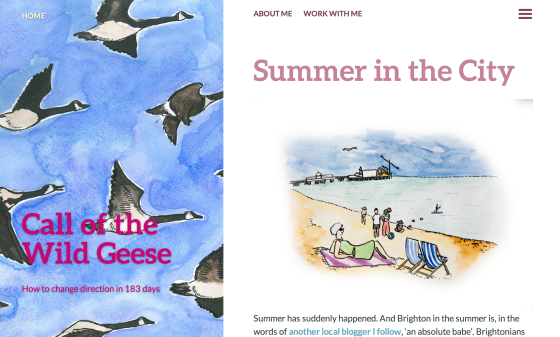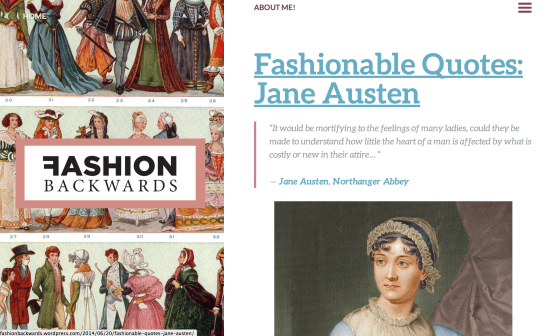Here's the first official edition of Longreads' Best of WordPress! We've scoured 22% of the internet to create a reading list of great storytelling — from publishers you already know and love, to some that you may be discovering for the first time.
We'll be doing more of these reading lists in the weeks and months to come. If you read or publish a story on WordPress that's over 1,500 words, share it with us: just tag it #longreads on Twitter, or use the longreads tag on WordPress.com.
***

How the owners of world-class restaurants including Alinea created their own custom ticketing system:
Though I hadn't the faintest idea how we would sell tickets, Grant and I included the line: "Tickets, yes tickets, go on sale soon…" in the announcement 'trailer' for Next. That was meant to do three things: 1) gauge the reaction from potential customers; 2) create interest and controversy; 3) force us to actually follow through.
Read the story
"There are only two conflicts in Irish history which have seen close to 200,000 Irishmen in uniform. One is the First World War… the other is the American Civil War." Historian Damian Shiels tells the true story of a soldier's death, and a first-person account from the man who killed him.
Read the story
Lambert looks at the sex scandals involving photographer Terry Richardson and American Apparel CEO Dov Charney, and asks: how did they stick around for so long anyway?
I remember thinking in 1999 that we were finally on the brink of the future. I saw how wrong I was about that repeatedly. After 9/11, the culture became demonstrably more conservative. Gender essentialism returned, and the '90s were suddenly considered a failed experiment, like the '60s, in pushing the boundaries for sex roles too far.
Read the story
Inside the business of corpse-repatriation insurance:
It is said, by people who would know, that at its peak, Colombia's infamous Medellín drug cartel was spending $2,500 a month on rubber bands to wrap around bricks of cash. The arithmetic of human excess begins to acquire mythic status when money becomes nearly impossible to count and we are left to communicate chiefly through estimates and legends, like the one in which Pablo Escobar set fire to $2 million in cash to create a fire for his daughter when they were on the run and she got cold. During Colombia's dark and bloody 1980s, the cartels' pecuniary abundance was not only the stuff of legendary proportion. Death, too, became grimly innumerable—and at the intersection of cartel, guerrilla, and paramilitary violence was the question of how to respond to the ubiquity of death.
Read the story

A former barista examines service work and the difficult transition into the creative class:
My kind of service work is part of the same logic that indiscriminately razes neighborhoods. It outsources the emotional and practical needs of the oft-fetishized, urban-renewing "creative" workforce to a downwardly mobile middle class, reducing workers' personality traits and educations to a series of plot points intended to telegraph a zombified bohemianism for the benefit of the rich.
Read the story
How we almost lost a New York landmark:
Many consider the destruction of New York's original Pennsylvania Station in 1963 to have been the architectural crime of the twentieth century. But few know how close we came to also losing its counterpart, Grand Central Terminal, a hub every bit as irreplaceable. Grand Central's salvation has generally been told as a tale of aroused civic virtue, which it was. Yet it was, as well, an affirming episode for those of us convinced that our political culture has become an endless clown-car act with the same fools always leaping out.
Read the story
A eulogy for the journalist Matthew Power, by his friend, writer Maria Dahvana Headley, following his death in March at age 39:
I can't believe Matt Power died on the river. I can't believe Matt Power isn't still trekking and toasting the joy he always had, for everything he did, for his amazing wife, for his amazing life. So many people are grieving him right now, and grieving the words he won't write, too. There are a lot of broken hearts all over the world. He was loved.
Read the story
The fastest growing job in America -- working as a nurse aide -- is also among the hardest. The reporter follows a single mother hoping to find a stable job and build a better life for her family:
"I'm getting desperate, to be honest," she told her classmates. "I need something good to happen. I'm hoping this might be it."
Read the story
Russell recounts his experience with night terrors, which he associates with his love of horror films and the work of Tom Savini, a special-effects artist known for working with director George Romero on zombie films.
Read the story
A transgender writer on changing her name:
I'm a woman with a pretty amazing namesake – two fantastic women. And my name is just as valid as any nickname adopted by any individual at any point in their lives. My name is just as valid as that of any Hollywood star. My name is just as valid as any woman married or divorced who chooses to adopt or discard her lover's family name. Those names are not up for debate, however. Somehow, transgender names are.
Read the story
Photos: wallyg, Flickr
banditob, Flickr
coffeegeek, Flickr











